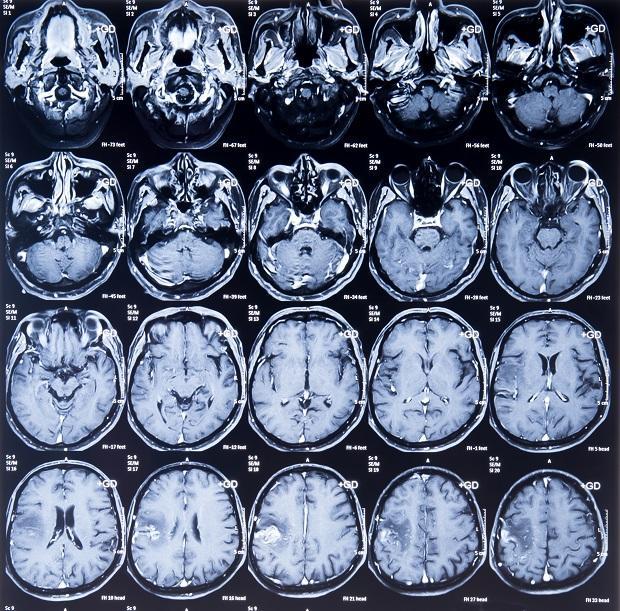A magnetic resonance imaging (MRI) scan is a technique that uses magnets and radio waves to create very detailed pictures of the inside of your body.
What is a magnetic resonance imaging (MRI) scan
MRI’s are useful for diagnosing tumours, joint or spinal injuries or diseases, soft tissue injuries or diseases of internal organs such as the brain or heart. It can show up problems in your veins and arteries without the need for surgery. It is also useful for planning some treatments of the same areas.

What happens before the test?
A MRI scan can take over an hour to complete, therefore you may be advised to go to the bathroom prior to the test. In most cases patients do not need to fast (go without food), however the MRI department will advise prior to the scan if there are any special requirements. Patients can usually take regular medication as normal. However, check this with the MRI department if you are unsure and it is important to tell the staff if any of the following apply:
- There is a chance that you might be pregnant
- There is any metal in the body such as pacemakers, screws or pins
- If there are any kidney problems
- There has been an allergic reaction to contrast dye in the past
- If you are anxious about the scan or about small spaces
What happens during the test?
The MRI scanner is a cylindrical tube with a bed that can move in and out of it and you will not feel anything when having the scan as it is a pain free procedure. However, it is especially important to lie still during this procedure.
Being in a MRI scanner can be quite noisy and staff will provide headphones to listen to music. A MRI scanner dos make some people anxious as it make you feel like you are being closed in. Pre medications can be given and there is a speaker in the machine so that you are able to talk with staff at all times.
What happens after the test?
Patients can usually go straight home after your scan, though they shouldn’t drive if a sedative or a contrast agent has been given.
Are there any side effects or risks?
There are no known side-effects of MRI, aside from implants or objects that must not go in the scanner.
Complications may include:
- Physical harm if safety procedures regarding metal are not followed
- Allergic to the contrast dye
- Worsening of kidney function after contrast dye